Trump administration asks SCOTUS to approve DEI-related education cuts
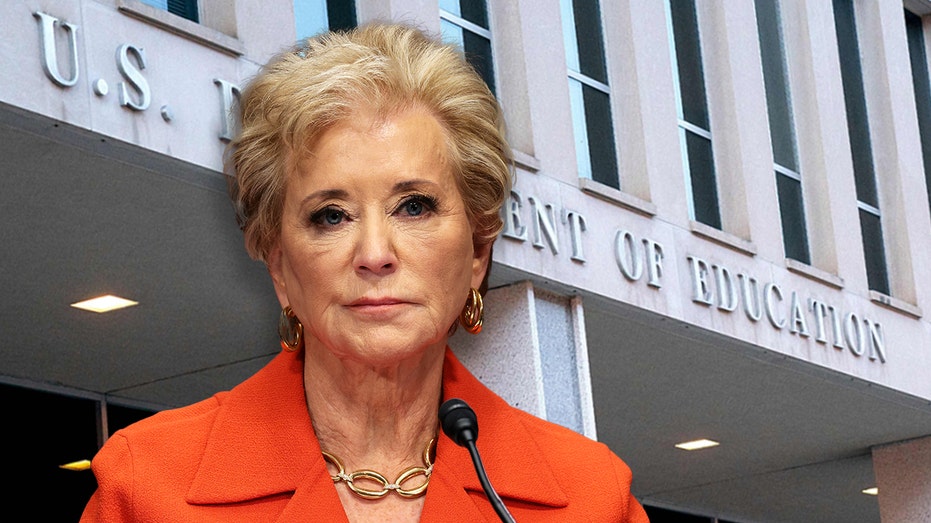
The Trump administration has filed an emergency appeal with the Supreme Court seeking approval to slash hundreds of millions of dollars in grants from the Education Department as part of its efforts to crack down on diversity, equity and inclusion initiatives within the department. The Justice Department is asking the court to lift a nationwide injunction which is preventing it from terminating the grants under two federal programs. Earlier this month, Boston-based U.S. District Judge Myong Joun ordered the Trump administration to restore the grants – via a temporary restraining order — which are disseminated via the Teacher Quality Partnership (TQP) and Supporting Effective Educator Development (SEED) programs. DEPARTMENT OF EDUCATION SIGNIFICANTLY DISMANTLED IN NEW TRUMP EXECUTIVE ORDER Days later the 1st U.S. Circuit Court of Appeals declined to pause Joun’s order, leading to today’s filing. Joun was appointed by former President Joe Biden. Eight states, including California, accused the Linda McMahon-led department of illegally terminating the grants that Congress had established as a solution to critical teacher shortages, especially in rural and underserved communities. The grants provide more than $600 million in grants for teacher preparation programs, often in subject areas such as math, science and special education, the states have argued. The Trump administration blasted the injunction in its filing and argued that federal courts were exceeding their jurisdiction. “This case exemplifies a flood of recent suits that raise the question: Does a single district-court judge who likely lacks jurisdiction have the unchecked power to compel the Government of the United States to pay out (and probably lose forever) millions in taxpayer dollars?” acting Solicitor General Sarah Harris wrote. “Unless and until this court addresses that question, federal district courts will continue exceeding their jurisdiction by ordering the executive branch to restore lawfully terminated grants across the government, keep paying for programs that the executive branch views as inconsistent with the interests of the United States, and send out the door taxpayer money that may never be clawed back.” TRUMP STILL NEEDS CONGRESS’ HELP WITH PLAN TO ABOLISH EDUCATION DEPARTMENT The filing argues that the case presents an “ideal candidate” for the Supreme Court to impose restraint on federal courts and the Justice Department argues that its case will likely succeed on the merits. “This court should put a swift end to federal district courts’ unconstitutional reign as self-appointed managers of executive branch funding and grant-disbursement decisions,” Harris wrote. The appeal will go to Justice Ketanji Brown Jackson based on jurisdiction and she will likely ask her colleagues to weigh in. A briefing schedule will be set and an order on temporary enforcement will follow. The Supreme Court is requesting a response by the opposing parties by Friday at 4 p.m. As well as the state of California, the opposing parties are Massachusetts, New Jersey, Colorado, Illinois, Maryland, New York and Wisconsin. The Education Department previously said the programs teach “divisive ideologies” such as diversity, equity, and inclusion (DEI) and the “instruction on white privilege and white supremacy.” The Republican president signed an executive order calling for the dismantling of the Education Department, and his administration has started overhauling much of its work, including cutting dozens of contracts it dismissed as “woke” and wasteful. A wave of lawsuits has slowed down the Trump administration’s agenda with the Justice Department filing four other emergency appeals of court rulings, including in relation to birthright citizenship and an appeal to halt an order requiring the rehiring of thousands of federal workers. The justices previously rejected a bid to freeze nearly $2 billion in foreign aid and did not immediately allow Trump’s firing to proceed of the head of a federal watchdog agency. Reuters and The Associated Press contributed to this report.
Brazil’s Supreme Court announces it will try Bolsonaro for coup attempt

The former president has been accused of five crimes including attempting a coup d’etat. Brazil’s Supreme Court has ordered former President Jair Bolsonaro to stand trial on charges of attempting a coup d’etat after failing to win the re-election in 2022. Bolsonaro, a far-right former army captain who served as Brazil’s president from 2019 to 2022, is accused of five crimes, including an alleged attempt to violently abolish the democratic rule of law. He has denounced the accusations against him as “grave and unfounded”. On Wednesday, a five-judge panel decided unanimously to put Bolsonaro on trial. If found guilty in the court proceedings, expected later this year, Bolsonaro could face a long prison sentence, further isolating him. He has not named a political heir. In his opening remarks, Justice Alexandre de Moraes, who is overseeing the case, screened dramatic footage of Bolsonaro’s supporters storming government buildings in violent scenes that unfolded just a week after the inauguration of President Luiz Inacio Lula da Silva in January 2023. Moraes added that Bolsonaro led “a systematic effort to cast doubt on the electronic voting machines” used in Brazil, part of his efforts to undermine the election he lost. Advertisement Reporting from Buenos Aires, Al Jazeera’s Teresa Bo recalled the chaotic and violent scenes in January 2023, when Bolsonaro’s supporters stormed the capital Brasilia, refusing to accept the new president’s inauguration. “A week after Lula was sworn in, we saw thousands of supporters of President Bolsonaro storming buildings in Brazil .. there were scenes of chaos in the capital … around 1,500 people were detained,” she said. The Supreme Court began reviewing charges against Bolsonaro and seven of his closest allies on Tuesday in a session that Bolsonaro voluntarily attended, sitting silently in the first row in an echo of his ally, US President Donald Trump’s trial last year. In the run-up to the landmark court hearing, Bolsonaro called a beachfront rally in Rio de Janeiro, hoping to seize on Lula’s waning popularity and pressure Congress to pass an amnesty bill favouring him and his jailed supporters. The demonstration, which some allies suggested could draw more than a million backers, was widely considered a washout after two independent polling firms found that only between 20,000 and 30,000 people showed up. Meanwhile, Bolsonaro has continued to insist that he will run for president again next year, despite a ruling by Brazil’s Superior Electoral Court that barred him from running for public office until 2030 for his efforts to discredit the country’s voting system. Bolsonaro’s handling of the COVID-19 crisis while president has also drawn intensive legal scrutiny. Advertisement Adblock test (Why?)
Istanbul elects Aslan interim mayor amid ongoing protests over Imamoglu
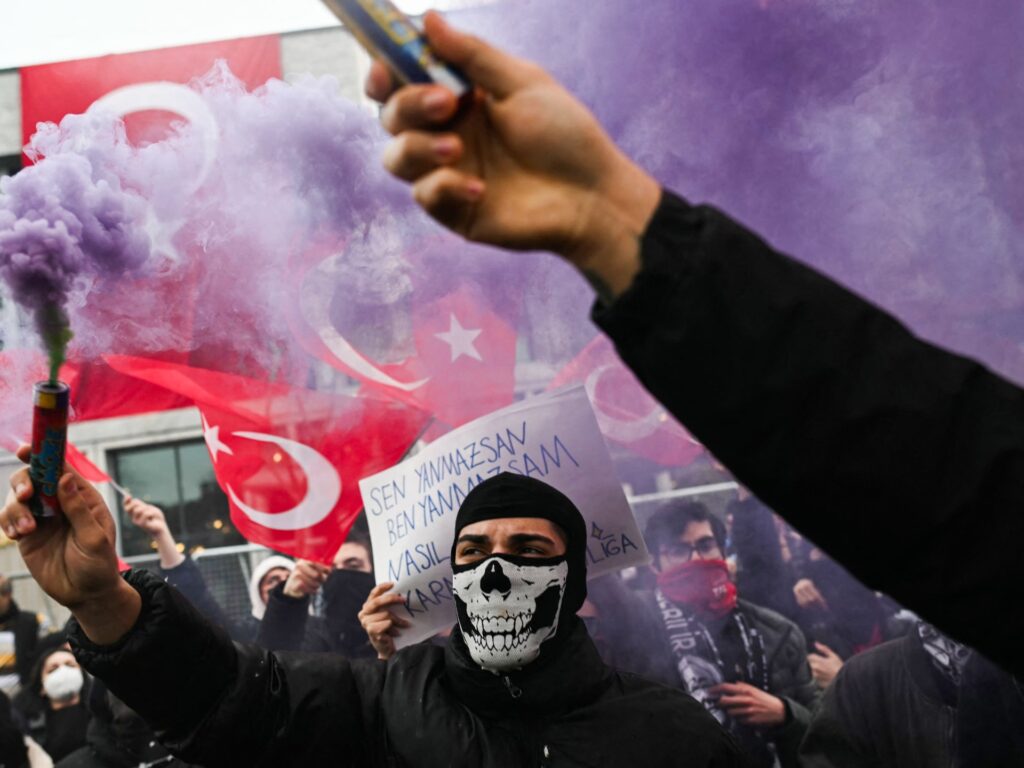
The city council has chosen a temporary mayor to take over from Ekrem Imamoglu, who was jailed last week. Istanbul’s municipal government has elected Nuri Aslan as interim mayor to replace Ekrem Imamoglu, who has been imprisoned on corruption charges. Local broadcaster NTV and Turkish news outlet Anadolu reported on Wednesday that Aslan, from Imamoglu’s Republican People’s Party (CHP), was chosen to run the city for the remainder of Imamoglu’s term, as he awaits trial. In the first round of voting, Aslan won 173 votes, while President Recep Tayyip Erdogan’s Justice and Development Party (AK Party) candidate, Zeynel Abidin Okul, won 123. In the second round of the election, Aslan received 177 votes, while Okul received 125. As both candidates were unable to win the two-thirds majority required to win the vote, a third round of voting began. In that vote, where candidates would need a simple majority to win, Aslan received 177 votes, Okul received 125 votes, securing Aslan’s election. Speaking at the Istanbul Municipality building in Sarachane, CHP chairman Ozgur Ozel said the interim mayoral election had blocked Erdogan’s push to appoint a trustee at the municipality. Advertisement “The struggle will expand to all of Turkiye from now on, but one leg will always be in Istanbul and one hand will always be on Sarachane,” Ozel said, adding that resistance from the public had thwarted what the opposition calls a “coup attempt” against it. Aslan, speaking alongside Ozel, reiterated his new position was temporary. “Our mayor, elected with the votes of Istanbul, will come back as soon as possible. We, along with our chairman, will take care of what he entrusted us with and give it back to him,” he said. This comes as demonstrations have been held daily across the country after Imamoglu was detained a week ago. His supporters say they will continue protesting despite authorities cracking down on gatherings and arresting hundreds of people, including journalists. By Tuesday afternoon, police had detained 1,418 people, Interior Minister Ali Yerlikaya said. Among them were 11 Turkish journalists covering the protests, seven of whom were remanded in custody. ‘Street terror’ Erdogan said on Wednesday that his government would not get worked up over what he described as “provocations” by the main opposition. Erdogan has remained defiant a week into the protests, denouncing the rallies as “street terror”. “Those who spread terror in the streets and want to set fire to this country have nowhere to go. The path they have taken is a dead end,” he has said. Government officials have rejected accusations that the legal action against the opposition figure is politically motivated and insisted that Turkiye’s courts operate independently. Advertisement Protests erupted on March 19 after Imamoglu’s arrest in a graft and “terrorism” probe which his supporters have denounced as a “coup”. The “terrorism” charge has been dismissed by the court for the time being. Vast crowds have participated in street demonstrations since then, defying protest bans in Istanbul, the capital Ankara and Izmir with the unrest spreading across the country. In a possible shift in tactics, the main opposition Republican People’s (CHP) party said it was not calling for another nightly protest on Wednesday outside the Istanbul mayor’s office. Most nights, some of the protests have turned into running battles with riot police, whose tough crackdown has alarmed rights groups. Adblock test (Why?)
Meet woman, photographer turned bouncer, who now handles security of high-profile celebs like….she is…

An increasing number of women have taken interest in becoming bouncers, being confident in their physical strength and building mental resilience. One of the famous contemporary bouncers is Anu Kunjumon, who handles the security of South superstar Mohanlal.
Kunal Kamra criticises T-Series after visibility of ‘Naya Bharat’ video blocked on YouTube
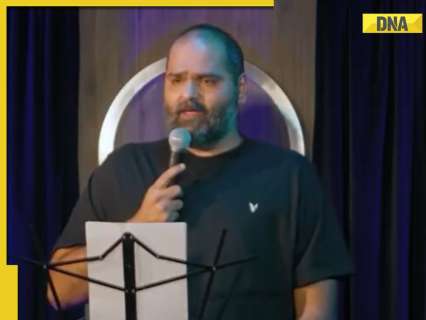
Kamra shared a screenshot from YouTube on X, which showed ‘Naya Bharat’, his new video, has been blocked due to copyright restrictions.
Rep Jasmine Crockett refuses to apologize for ‘Gov Hot Wheels’ comment
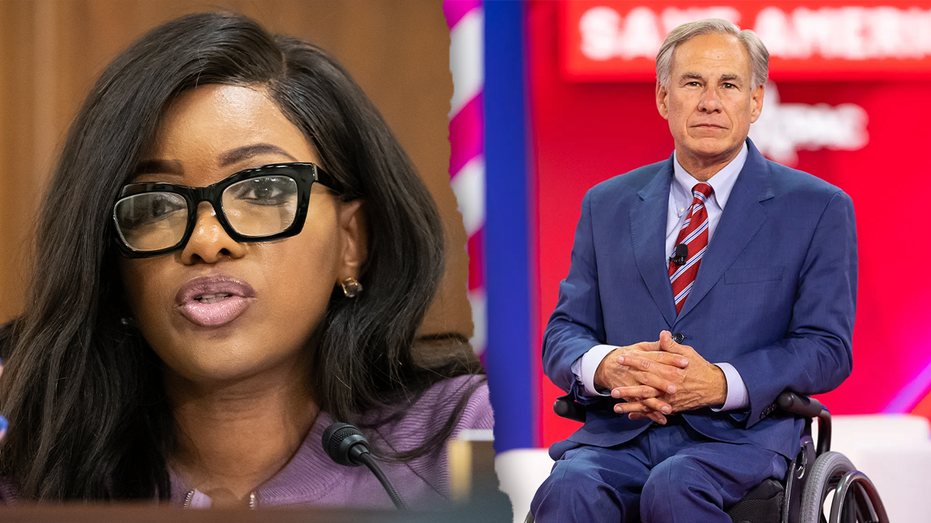
Rep. Jasmine Crockett, D-Texas, refused to apologize for referring to Gov. Greg Abbott, who uses a wheelchair, as “Governor Hot Wheels” on Wednesday. Crockett refused to apologize multiple times in an interview with Fox News before growing frustrated and ending the conversation. The lawmaker put out a statement regarding her comment earlier this week, but it did not include an apology. “I do have a statement. Why would I apologize when I put out a statement? My statement was clear,” Crockett said when confronted on the matter. “But you didn’t apologize for calling him ‘Governor Hot Wheels’ when he gets around in a wheelchair, you don’t understand how that’s offensive to people?” Fox Business reporter Hillary Vaughn pressed. PAM BONDI ON JASMINE CROCKETT’S COMMENTS: WORDS HAVE CONSEQUENCES | FOX NEWS VIDEO “I don’t understand how many times you need me to repeat this to you,” Crockett responded. “Right. But why won’t you apologize?” Vaughn said. “I put out a statement,” Crockett repeated. JASMINE CROCKETT DESCRIBES DEMOCRATIC DONOR TALK ON SCHUMER ‘REMINISCENT’ OF BIDEN BEING TAKEN DOWN “That didn’t have an apology in it,” Vaughn countered. “You don’t feel bad about making fun of someone who is in a wheelchair?” “Okay, well. I’m done here,” Crockett said as she began to walk away. “I’m done. I’m done with this.” Speaking at a benefit for the Human Rights Campaign in Los Angeles, Crockett mocked Abbott, whose legs were paralyzed in a running accident in 1984. “We in these hot a– Texas streets, honey. Y’all know we got Governor Hot Wheels down there, come on now! And the only thing hot about him is that he is a hot a– mess, honey!” she said, laughing. Crockett issued a statement on social media regarding her comments, arguing that she had not been referring to Abbott’s paralysis. “I wasn’t thinking about the governor’s condition—I was thinking about the planes, trains, and automobiles he used to transfer migrants into communities led by Black mayors, deliberately stoking tension and fear among the most vulnerable. Literally, the next line I said was that he was a ‘Hot A** Mess,’ referencing his terrible policies. At no point did I mention or allude to his condition,” she wrote.
‘Veto Corleone’: Youngkin kills left-wing dreams with record-setting bill nixing spree
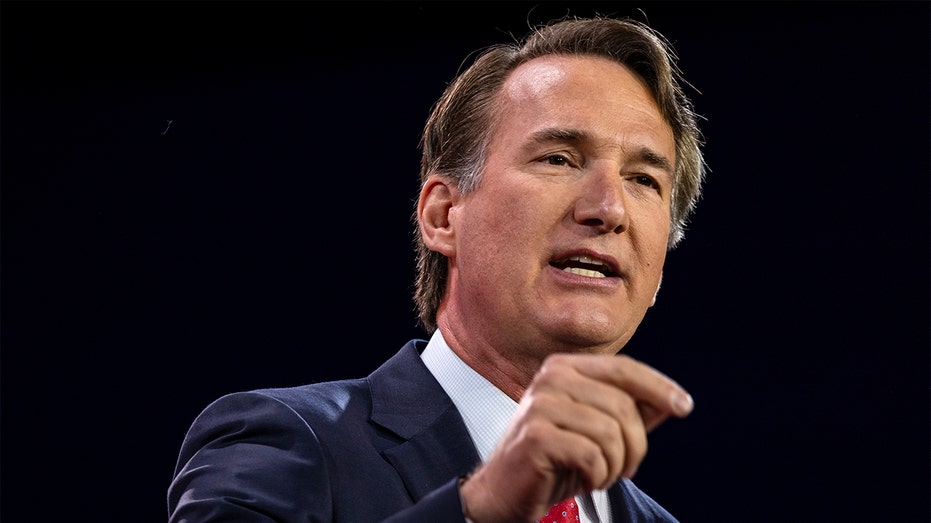
Virginia Gov. Glenn Youngkin is drawing comparisons to “The Godfather” after vetoing nearly 160 bills from the Democrat-controlled legislature Wednesday. “You could call him ‘Veto Corleone’,” a Republican strategist told Fox News Digital in comments later Wednesday, after 159 bills were killed upon reaching his desk. Virginia’s General Assembly passed bills this session that would have prevented prayer in front of abortion clinics, required the commonwealth to implement a comprehensive “environmental justice” strategy and adjusted criminal bond policies. All of those bills were vetoed by Youngkin, and the legislature’s Democratic majority is far from veto-proof – with two-seat margins in each chamber. YOUNGKIN WALKS POLITICAL TIGHTROPE WITH SUPPORT FOR DOGE, MEGA-JOB FAIR Other vetoed bills included two pertaining to gun control legislation, restricting the purchase or transfer of firearms and the like. Ten of the bills were considered “soft on crime” legislation by critics, and about a dozen would have raised costs on Virginians, according to Republicans. The governor also nixed a proposal to raise the state minimum wage to $13.50 per hour, and later to $15. In a statement, Youngkin highlighted legislation supported by some in the Trump administration – such as a bill to keep school lunches free of artificial dyes, which he signed and which mirrors an initiative from Health and Human Services Secretary Robert F. Kennedy Jr. YOUNGKIN INVITES NEW TRUMP ADMIN TO SETTLE IN VA OVER MD, DC; TOUTING OLD DOMINION’S BIGGEST DRAWS “I have completed my actions on the more than 900 bills sent to me during the 2025 legislative session,” Youngkin said. “The legislation that I’ve signed into law and the budget amendments I’ve put forward this year will go a long way to helping ensure Virginia remains a great place to live, work, and raise a family. “I have returned many bills with recommended amendments, hoping that we can come together next week with a common purpose to advance these bills,” he added. CLICK HERE TO GET THE FOX NEWS APP Of his veto choices, Youngkin said those bills collectively would “take the commonwealth backward by raising the cost of living, hurting our strong job growth, stifling innovation, undermining our All-American All-of-the-Above Power and Energy Plan or making our communities less safe.” On X, formerly Twitter, observers contrasted Youngkin’s veto prowess with his predecessors. The incumbent is one veto away from hitting 400, while Sen. Mark Warner, a Democrat, only vetoed 18 bills in his four years as governor. Fellow Republican Bob McDonnell vetoed a similar amount to Warner, while the nearest governor of the 21st century in veto usage was Democrat Terry McAuliffe, with more than 110 vetoes.
Top agency staffer trying to block crucial Trump directive once managed DEI team
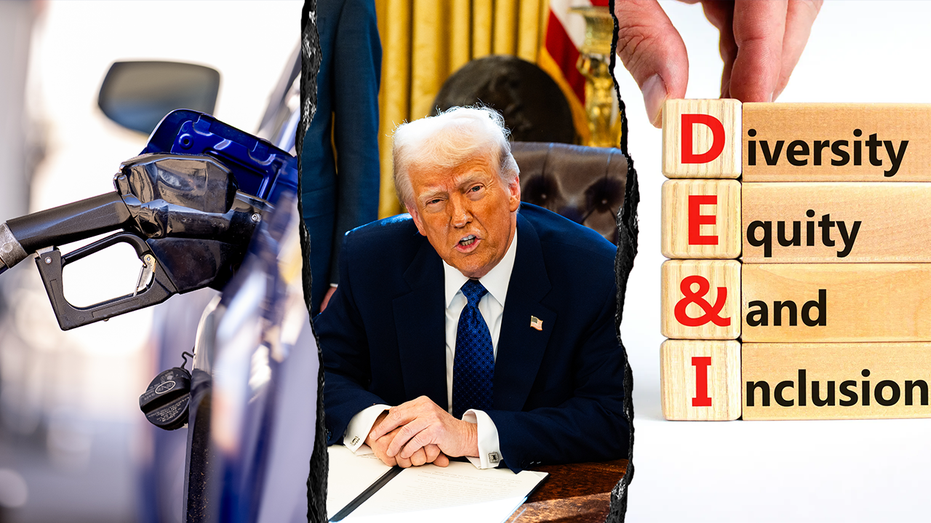
EXCLUSIVE: Republicans on Capitol Hill are fuming that the Government Accountability Office (GAO) general counsel who shut down President Donald Trump‘s request to supersede California’s aggressive gas emissions laws once managed diversity, equity and inclusion (DEI) initiatives for the agency. Republicans have dismissed the decision penned by GAO General Counsel Edda Emmanuelli Perez, because she once served as the agency’s “Managing Director of Opportunity and Inclusiveness (O&I).” According to the GAO’s official website, the O&I office includes advising senior staff on equal employment opportunities and promoting a “work environment that is fair, unbiased and inclusive.” “A far-left radical whose main job is pushing DEI nonsense is trying to undermine American prosperity. What a surprise. These bad actors should be removed from government swiftly,” Sen. Jim Banks, R-Indiana., told Fox News Digital in a statement. While some Republicans discredit Emmanuelli Perez’s decision as “DEI nonsense,” other Republicans denied the “democratic legitimacy” of banning California’s gas vehicles without a vote. Rep. Kevin Kiley, R-Calif., told Fox News Digital the House will move forward with a Congressional Review Act resolution regardless of the GAO decision. EPA GRANTS CALIFORNIA PERMISSION TO BAN NEW GAS CAR SALES BY 2035 “The GAO’s conclusion that California can ban 95 percent of the state’s cars, without a vote of the Legislature and with no recourse from Congress, defies basic notions of democratic legitimacy and common sense. We will be moving forward with our Congressional Review Act resolution to reverse this insane ban and restore choice for California consumers,” Kiley said in a statement. TRUCKING EXEC ‘HOPEFUL’ AS TRUMP EPA TARGETS BLUE-STATE EMISSIONS REGS: ‘LIGHT AT THE END OF THE TUNNEL’ Emmanuelli Perez shut down any insinuation from Republicans that she ruled independently on the case, telling Fox News Digital in a statement that the GAO’s decisions are “institutional, not individually authored, products.” “In response to a Congressional request, we summarized relevant, established case law related to the Congressional Review Act and waivers under the Clean Air Act. We stand behind our work, as all GAO products go through our extensive quality assurance process,” Emmanuelli Perez said. The GAO released its decision earlier this month in response to a request from Congress on whether EPA waivers that grant California permission to enforce its 2035 gas car ban are subject to the Congressional Review Act (CRA). The GAO determined that California’s EPA waiver is not subject to the CRA, so Congress cannot use the CRA to overturn California’s aggressive zero-emission goals. Kiley, however, has committed to moving forward with the CRA despite the GAO’s ruling. Trump and EPA Administrator Lee Zeldin announced last month the creation of a National Energy Dominance Council, in which the EPA will send President Joe Biden-era EPA rules to Congress for review. Those Biden-era EPA waivers included “allowing California to preempt federal car and truck standards promulgated by EPA and the U.S. Department of Transportation’s National Highway Traffic Safety Administration.” The Trump administration announced the EPA waiver transmitted to Congress included “California’s Advanced Clean Cars II, Advanced Clean Trucks, and Omnibus NOx rules,” arguing the waivers on trucks increased the cost of vehicles, goods, and therefore, the cost of living for Americans. “The Biden Administration failed to send rules on California’s waivers to Congress, preventing Members of Congress from deciding on extremely consequential actions that have massive impacts and costs across the entire United States. The Trump EPA is transparently correcting this wrong and rightly following the rule of law,” Zeldin said alongside the president in the Oval Office. Following Zeldin and Trump’s announcement, Sens. Sheldon Whitehouse, D-R.I., Alex Padilla, D-Calif., and Adam Schiff, D-Calif., requested a legal decision from the GAO on whether the EPA’s decision to grant California waivers under the Clean Air Act could be overturned using the CRA. The Democratic senators championed the GAO’s ruling and slammed the Trump administration for trying to eliminate the “California emission standards [that] have protected generations of Americans against fossil fuel emissions.” “By ignoring decades of precedent and the plain text of the Congressional Review Act, the Trump EPA is attempting to sell out our nation’s public health and environmental protections to the same polluting industries that bankrolled much of Trump’s campaign,” the senators said following the GAO’s decision. However, Trump campaigned on eliminating such regulations, and on his first day back in the White House, the president signed an executive order “unleashing American energy.” The executive order eliminated the “electric vehicle (EV) mandate” to promote consumer choice. While the litigation is tied up in the congressional branch, with the stroke of a pen on day one, Trump moved to terminate “state emissions waivers that function to limit sales of gasoline-powered automobiles.” Trump also campaigned on a day-one commitment to eliminating DEI in the federal government. On his Inauguration Day, Trump signed an executive order “ending radical and wasteful government DEI programs and referencing,” which rolled back Biden-era DEI policies and initiatives in the federal government.
CIA director blasts Democrat’s ‘offensive line of questioning’ about Hegseth’s ‘drinking habits’
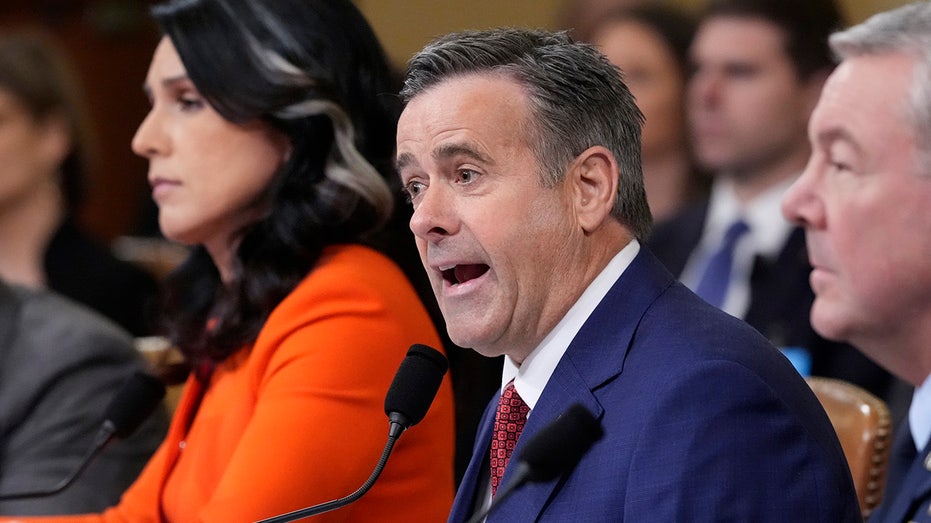
CIA Director John Ratcliffe blasted a California Democrat Wednesday for asking him “whether Secretary of Defense Pete Hegseth had been drinking before he leaked classified information” in a Signal chat group, calling his words an “offensive line of questioning.” Rep. Jimmy Gomez sparked the testy exchange during a House Intelligence Committee hearing on worldwide threats, where Ratcliffe appeared alongside Director of National Intelligence Tulsi Gabbard and other top Trump administration officials. “The main person who was involved in this thread that a lot of people want to talk to is, Secretary of Defense Hegseth. And a lot of questions were brought up regarding his drinking habits in his confirmation hearing. To your knowledge, do you know whether Pete Hegseth had been drinking before he leaked classified information?” Gomez asked Gabbard, to which she responded, “I don’t have any knowledge of Secretary Hegseth’s personal habits.” When Gomez then asked Ratcliffe the same question, telling him it was either a “yes or no” answer, Ratcliffe fired back, saying “You know, no. I’m going to answer that. I think that’s an offensive line of questioning.” ATLANTIC REPORTER PUBLISHES MORE TEXTS ABOUT ATTACK ON HOUTHI TARGETS “The answer is no. I find it interesting…” Ratcliffe continued before Gomez began shouting “Hey, I yield back, this is my time, director! Director!” “You asked me a question, do you want an answer?” Ratcliffe said. “You don’t want to focus on the good work that the CIA is doing, that the intelligence community…” “Director, I reclaim my time. Director, I reclaim my time,” Gomez then said. “I have huge respect for the CIA, huge respect for men and women in uniform. But this was a question that’s on the top of the minds of every American, right?” “He stood in front of a podium in Europe holding a drink,” Gomez then claimed. “Was his performance compromised because of a successful strike?… you think he should accept responsibility for a successful strike to make Americans safer?” Ratcliffe started saying as Gomez again interrupted him in an attempt to get the situation under control. RATCLIFFE SAYS NEW SIGNAL TEXTS SHOW HE ‘DID NOT TRANSMIT CLASSIFIED INFORMATION’ Rep. Ben Cline, R-Va., followed Gomez’s questioning and allowed Ratcliffe to speak without interruption. “I appreciate that, Congressman. I guess, you know, just a general reflection here again, that, for the last two days, members of the intelligence community have been asking questions about a Signal messaging group and not asking questions — from Democrats either in the Senate or the House — on China, Russia, Iran and the real threats, that are going on the United States,” the CIA director said. “No one’s asked me about my second day on the job here, where I lit the fuse that led to a foreign government participating with us to capture one of the senior planners of the Abbey gate bombing that killed 13 Americans,” he added, “But instead, we’re getting questions about whether or not someone has drinking habits.”
How the discovery of a mass grave sparked uproar over the missing in Mexico

Since the March 5 revelation, Mexican media have published a wave of testimonies from those who claim to have survived or escaped Rancho Izaguirre. Many of those who came forward chose to remain anonymous. They identified as impoverished youths from Guadalajara and explained they were lured to the ranch by false promises of work in online advertisements — or simply kidnapped. One young man said the ranch was described as “hitman school”. Those who complained, questioned the cartel leader’s orders or failed to pass the brutal tests were executed. Indira Navarro, the head of the Warrior Searchers of Jalisco, said in a radio interview that one survivor dubbed it “a little school of terror”. A protester lights a candle next to shoes representing Mexico’s missing on March 15 [Jared Olson/Al Jazeera] Other documents have emerged suggesting that local authorities may have known about the site but failed to act. On March 12, the advocacy group Mexicans Against Corruption and Impunity published a report showing that National Guard members discovered burned bodies in the same area in August 2019. It also found that a local police commissioner sent the National Guard a message in March 2020, disclosing an act of attempted bribery. According to the internal document, an anonymous female caller said that National Guard personnel “would be given a sum of money” in exchange “for reducing the intensity of the operations” in the area. Jalisco has the highest official rate of forced disappearances in Mexico. Since the government began collecting statistics on disappearances in the 1950s, more than 15,000 people have been reported missing in the state alone. In the wake of the recent uproar, the state attorney general, Salvador Gonzalez de los Santos, said heavy machinery had been deployed to the Teuchitlán site but that the area was too big to search in its entirety. That has led the federal government to point the finger at local authorities for not investigating thoroughly enough. “They failed to track down the evidence or identify anything found abandoned at that location,” Mexico Attorney General Alejandro Gertz Manero said at a March 19 news conference. “A full examination of the site was not conducted, nor were fingerprints taken.” A protester in Mexico City holds up a sign denouncing ‘mass graves, extermination centres and slavery’ [Jared Olson/Al Jazeera] A day later, on March 20, federal and state authorities organised a tour of the site for journalists, officials and members of the search brigades. More than 12 buses arrived, some carrying social media influencers. But the visit was widely criticised, not least for letting the public access an ongoing crime scene. Family members of the disappeared also questioned why the influencers were reportedly allowed to access the ranch before they were. Some of the influencers later published accounts online denying the existence of crematoriums on the site. President Sheinbaum, meanwhile, has assigned federal prosecutors — led by Gertz Manero — to take up the case. “The first thing we need to do is investigate, because the images are painful, and the first thing we need to know is what happened there, before anything else,” she said. Some critics, however, fear the federal authorities cannot be trusted to helm the investigation. The National Guard, after all, was created in 2019 under former President Andrés Manuel López Obrador, Sheinbaum’s mentor. Still, on Monday, federal authorities announced progress in their investigation. They confirmed that they had detained a recruiter for the Cartel Jalisco Nueva Generación in a low-income neighbourhood in Mexico City, where he allegedly sought out youths to be brought to the “extermination site”. Two former police officers from a village near Teuchitlán were also arrested in relation to the ranch. But academics and investigative journalists have suggested that the ranch in Teuchitlán is part of a vast archipelago of training centres in the hills to the west of Guadalajara. Nor is the problem limited to one state: On March 12, a separate search brigade said it had discovered another “extermination site”, this time in Reynosa, Tamaulipas. Police stand guard around the National Palace in Mexico City, as protests unfold on March 15 [Jared Olson/Al Jazeera] At the recent protest at the Zócalo, tensions started to boil over as evening fell. Some demonstrators broke through barricades and brawled with the police holding riot shields in front of the National Palace. “Mercenaries! Killers!” they shouted towards the palace, the official residence of Mexico’s president. Sebastián Arenas, a journalism student from the National Autonomous University of México, explained that many of his fellow protesters saw Teuchitlán as indicative of a federal security strategy that has allowed mass murder. “In the press, it’s said that things have changed in Mexico, that there aren’t disappearances, or that they’re going down, that the judicial reform is going to bring justice,” he told Al Jazeera. “But here are the results: a clandestine grave, an extermination camp that looks like Auschwitz.” Adblock test (Why?)
